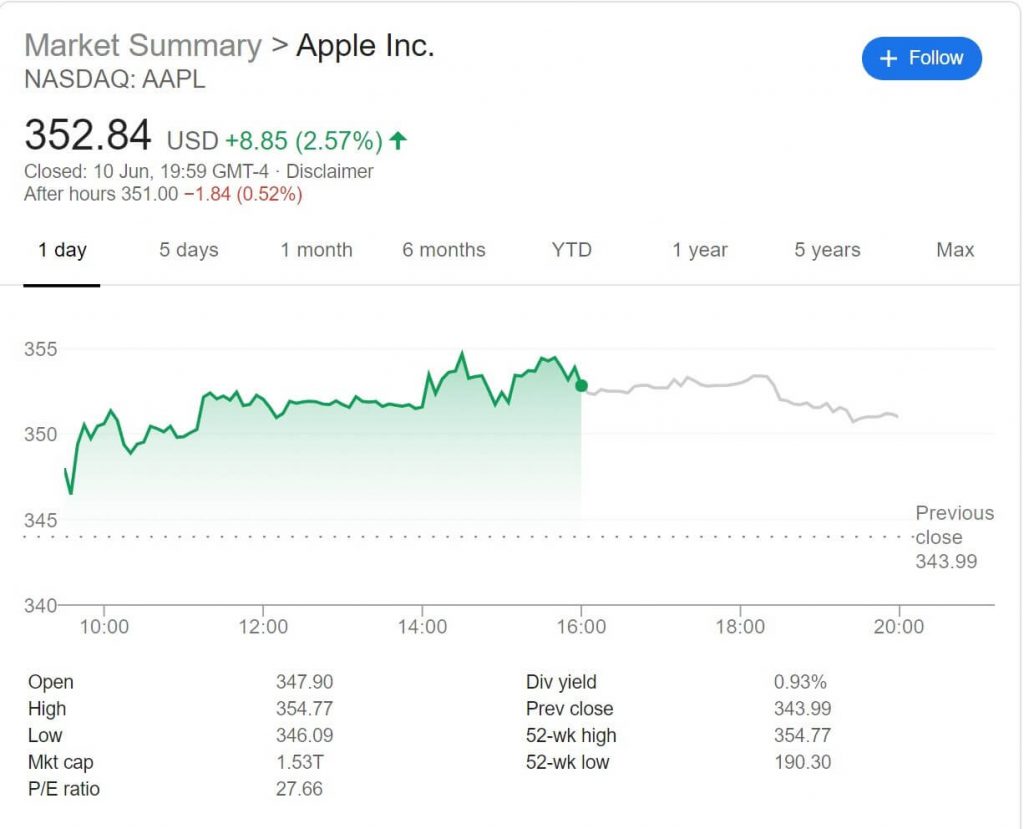Hi Guys! It’s the end of another busy week in the global tech space. As stories of layoff’s slow down, the impact of startups across the space is improving with stories of funds raised, products launched among other things making the rounds.
Here is a quick roundup of some of the major stories around the globe you might have missed during the week.
Apple becomes first $1.5 trillion US company
Apple has become the first to hit the landmark milestone of a $1.5 trillion market valuation. This comes just two years after it became the first to pass the $1 trillion market valuation barrier.
In 2018, the iPhone maker made history by exceeding its unicorn status after its stock price skyrocketed due to its 17% revenue growth year-over-year.


This week, the tech giant has crossed another threshold. This is especially impressive because it occurred at a time when the world is bothered about a recession due to the effects COVID-19 has had on the economy.
Apple’s stock jumped from $307 around a month ago to $354, raising its market cap to about $1.53 trillion. Microsoft and Amazon are following closely with $1.4 trillion and $1.32 trillion respectively.
First commercial Earth-to-moon communication satellite planned for 2023
Currently, sending communications between Earth and the moon requires a huge amount of heavy, bulky transmission equipment, which cost a lot of money.
Following the footsteps of SpaceX and Rocket Lab, CommStar Space Communications a new private space company wants to lower the weight, power and cost requirements of any communications equipment that is needed for future missions to the moon.


The company wants to do this by helping defray that cost of sending communications to the moon by installing a data relay satellite in between the moon and Earth.
Christened “CommStar-1” the startup’s first satellite is being designed in partnership with Thales Alenia Space. The satellite is scheduled to be deployed by 2023.
Free users on Zoom will get end-to-end encryption after all
After initially saying that free users of its teleconferencing app won’t get end to end encryption, Zoom has decided otherwise. The video chat app announced this week that it will allow both free and paid users to enable end-to-end encryption of calls starting with a beta test next month.
According to Zoom CEO Eric Yuan, the company will provide end-to-end encryption to users for whom it can verify identity, thereby limiting harm to these vulnerable groups. He added that Free users sign up with an email address, which does not provide enough information to verify identity


Zoom has been at the end of very harsh criticism since the beginning of the pandemic due to several security lapses. In March, the company admitted its app wasn’t end-to-end encrypted. Since then Zoom has spent time improving its security and working on a new encryption solution.
Drone-deployed sterile mosquitoes to check the spread of Malaria
Researchers have discovered that using drones to deploy sterile mosquitoes have shown impressive progress in controlling the population of insect-borne diseases.
According to them the research aims to release sterilized male mosquitoes into the wild, where they compete with the other males for food and mates but produce no offspring. This could potentially save thousands of lives by depopulating mosquitoes.


The sterile mosquitoes are grown in bulk and sterilized using radiation. They are then packed at low temperatures (“chilled” mosquitoes don’t fly or bite) into cartridges. These cartridges are kept refrigerated until they can be brought to a target site, where they’re loaded onto a drone.
The drone then ascends to a set altitude and travels over the target area, steadily releasing thousands of sterile males as it goes. Using drones as a method of dispersion of the mosquitos has been the most effective and practical mode, according to the researchers. They added that using this method on a large scope could lead to improved general health for billions.
TransferGo raises $10M funding
TransferGo, a London-based international money transfer service with presence in Nigeria has raised another $10 million in funding. The round was co-led by Seventure and Vostok Emerging Finance, with follow-on funding from Hard Yaka, Revo Capital and Bootstrap Europe.


Founded in 2012, TransferGo offers one of the fastest international money transfer services on the market. According to the startup, they are the only Pan-European money transfer company that can guarantee your money will reach its destination in 30 minutes.
At the close of funding, the company disclosed that the number of its customers have surpassed two million. It also revealed that it has launched in 11 new markets bringing the number of countries it operates in to 33 and the number of countries you can send money to more than 65.






